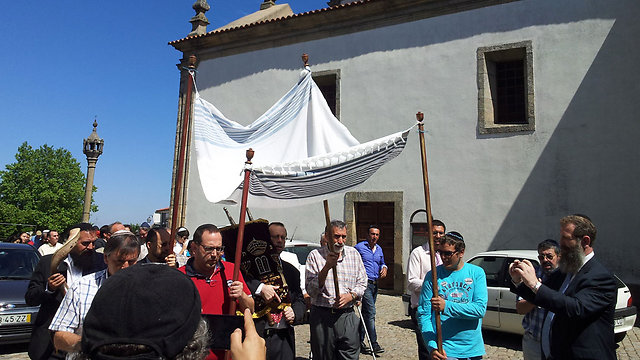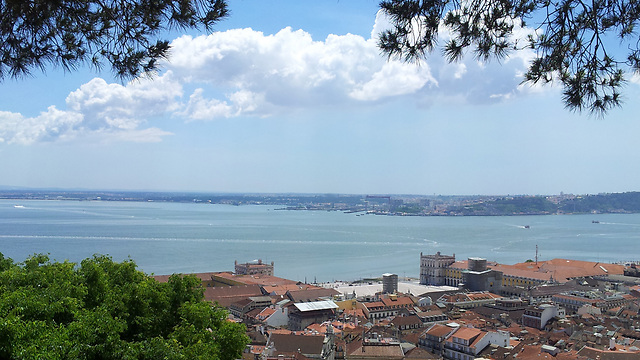Since March 2015, when descendants of Jews persecuted 500 years were granted the right to apply for citizenship, 3,546 applications remain in pending, and a mere 292 have been approved.
Portugal’s Institute of Registers and Notaries (IRN) has so far only approved a mere 8%—292 out of 3,838—of the applications for Portuguese citizenship from the descendants of Sephardic Jews who were persecuted under the Inquisition, Público newspaper reported.
Portugal approved a law in March of 2015 that grants citizenship rights to the descendants of Jews it persecuted 500 years ago. The rights apply to those who can demonstrate “a traditional connection” to Portuguese Sephardic Jews, such as through “family names, family language, and direct or collateral ancestry.”
Público reported that of the 3,546 unapproved applications, none have yet been denied. They remain in treatment.

The Ministry of Justice, to which the IRN belongs, was quoted in the Lisbon-based daily as stating that the complex process requires “a rigorous examination of the submitted documents” along with the verification of the submitted data with public bodies, such as the ministry’s own Judicial Police, the Ministry of Internal Affairs’ Foreigners and Borders Service and the Directorate-General of Justice Administration.
Applicants also must be vetted by Portuguese Jewish community institutions in Lisbon or Porto, who are responsible for checking existing documentation of the applicants’ ancestors, often written in Ladino.
A plurality of applications have thus far come from Turkey (about 50%), and Israel (31%) and Brazil follow, Público wrote. When the law first came into effect, the IRN had a monthly average of about 46 applications which this year grew to 374, the Ministry of Justice relayed
After Spain drove out Jews in 1492, some 80,000 of them crossed the border into Portugal, historians estimate. King Joao II charged the fleeing Sephardic Jews a tax to shelter in Portugal. He promised to provide them with ships so they could go to other countries, but later changed his mind.

In 1496 his successor King Manuel I, eager to find favor with Spain’s powerful Catholic rulers, Ferdinand and Isabella and marry their daughter Isabella of Aragon, gave the Jews 10 months to convert or leave. When they opted to leave, Manuel issued a new decree prohibiting their departure and forcing them to embrace Roman Catholicism as “New Christians.”
The “New Christians” adopted new names, inter-married and even ate pork in public to prove their devotion to Catholicism.
Some Jews, though, kept their traditions alive, secretly observing the sabbath at home then going to church on Sunday. They circumcised their sons and quietly observed Yom Kippur, calling it in Portuguese the “dia puro,” or pure day. Though officially accepted, the New Christians were at the mercy of popular prejudice. In the Easter massacre of Jewish converts in 1506 in Lisbon, more than 2,000 Jews are believed to have been murdered by local people.
The Portuguese Inquisition, established in 1536, was at times crueler than its earlier Spanish counterpart. It persecuted, tortured and burned at the stake tens of thousands of Jews. Now those events are widely viewed as a stain on Portuguese history.
As reported by Ynetnews
